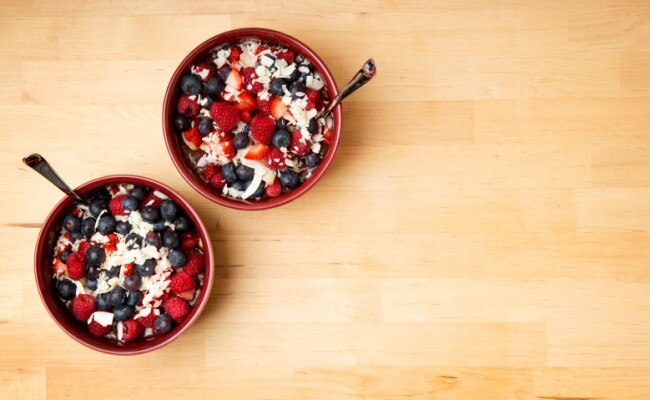What makes an ordinary food a superfood? For starters, its nutritional profile is remarkable, boasting higher levels of vitamins, minerals, protein and antioxidants than other foods. Eating more of these plant-based powerhouses will not only support good nutrition, but it also can help support your health in a variety of ways. Here are five top picks to start loading onto your plate today.
Mangosteen
This exotic fruit, sometimes referred to as the “Queen of Fruits,” isn’t just another mango. Often consumed in juice form, it has a sweet, tangy taste that’s similar to a combination of pears and strawberries. Mangosteen contains antioxidants known as xanthones, compounds found to have strong antioxidant properties. Its high antioxidant value makes it an excellent choice for achieving and maintaining total-body wellness.*
Acai
Have you ever had an acai bowl? This popular item on many juice bar menus often features oats, granola and a delicious, blueberry-like fruit known as acai (pronounced ah-SIGH-ee). Besides sweet flavor, these nutritional gems offer vitamins C and E, along with good-for-you fatty acids, fiber and antioxidants. Research has shown that the consumption of acai juice or pulp by healthy individuals caused a significant increase in their plasma antioxidant capacity.*
Blueberries
In muffins, atop cereal, in smoothies or scooped straight from a carton, blueberries are one of the top superfoods to add to your diet. Besides packing a potent vitamin C punch, blueberries deliver polyphenolic flavonoids and significant levels of micronutrients. They’re known to have one of the highest oxygen radical absorbance levels of all fruits and vegetables. In addition, consumption of blueberries may help improve mild memory problems associated with aging.*
Broccoli
Yes, your mother was right: you should eat more broccoli. Broccoli belongs to the cruciferous family of vegetables and contains a compound called indole-3 carbinol which offers powerful antioxidant properties, along with supporting normal liver detoxification, DNA function and the health of breast and prostate tissues.*
Pumpkin seeds
Not just a Halloween-time treat, pumpkin seeds contain a plethora of healthy nutrients, including the minerals zinc, magnesium, manganese, phosphorus, iron and copper, plus omega-3 essential fatty acids. They also contain curbicin, phytosterols and antioxidants to provide cellular protection against the damaging effects of free radicals.* Vary up a seed-eating routine by making pumpkin milk. It’s easy—just add 1 cup of pumpkin seeds and 5 cups of water to a blender and process for a minute. Strain the mixture, add a ¼ teaspoon of vanilla and a tablespoon of honey, maple syrup or agave syrup and re-blend for 15 seconds.
*These statements have not been evaluated by the Food and Drug Administration. This product is not intended to diagnose, treat, cure or prevent any disease.

